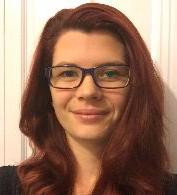It’s a contemporary issue that almost everyone has a strong opinion on.
Dr Louise Richardson-Self, Lecturer in Philosophy and Gender Studies in the University’s School of Humanities, examines the issue of same-sex marriage in her new book Justifying Same-Sex Marriage: A Philosophical Investigation.
Dr Richardson-Self said the argument for same-sex marriage tended to focus on the ways those unions are similar to heterosexual unions, rather than urging others to accept the ways they differ.
“My book focuses on thinking through how we can recognise difference without denying parts of who we are.
There seems to be a general tendency when we encounter someone who is different to us to put aside the differences and look for the similarities. And if there aren’t enough similarities, then that causes tensions.
“I’m really interested in the concept of difference and trying to find ways, as a social collective, we can recognise people’s differences without denying them at the same time.”
Dr Richardson-Self said the concept of human rights occupied an important part of the same-sex debate dialogue.
“There is this idea that there is a baseline of human rights; equal rights that everyone gets. But then there are groups who require additional rights, for example women, cultural groups, or Lesbian, Gay, Bisexual, Transgender and Intersex (LGBTI) people.
“It is this paradoxical position where if you get these additional rights, people see you as an outside group. So the rights afforded can actually become a way of pointing out difference.
This issue with rights come back to this specific idea of difference. If you start recognising true human plurality, then you avoid this mental conception of a baseline of what’s normal.

Dr Louise Richardson-Self's book focuses on thinking through how we can recognise difference without denying parts of who we are.
“I believe rights as a form of dialogue can work but the way people understand rights is something that needs to be shifted, not just their opinion about whether same sex marriage should be legal."
Dr Richardson-Self said the language used around discussions of same-sex marriage was also important to examine.
“The language that we use plays a massive part in how we understand contemporary issues of political and ethical significance. In this case, the language of marriage leads seamlessly into the normative language of family.
“Love has ended up being the dominant narrative that has overtaken the same-sex marriage debate. This could be because this is the most politically expedient way of getting the desired message across- that same-sex couples wanting to get married are not dissimilar from heterosexual marriages.
“The narrative is of love rather than a narrative of equality. Advocates of same-sex marriage have been able to present themselves in a desexualised way, with arguments focusing on love, family and children.”
Dr Richardson-Self said that change by small steps did make gradual progress, but it still wasn’t dealing with the broader issue of discrimination.
When society experiences change by small incremental steps, you do make some kind of progress but it is not dealing with this broader issue of accepting people for who they are in recognition of their differences, not despite them.
“In other places where same-sex marriage has been legalised, people who identify as queer are still discriminated against in other ways.
“In Australia we have a context which provides some recognition to same-sex couples already.
Interested in conducting your own research? Apply now to become a research student.
Because we have this platform, we should be using it to think through all of the different arguments for same-sex marriage and to see if we can work on convincing people that everyone is worthy of being treated with respect, even if they don’t live their life the way you think they should.
